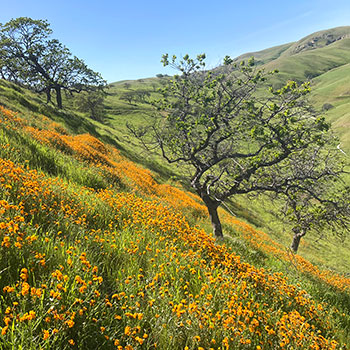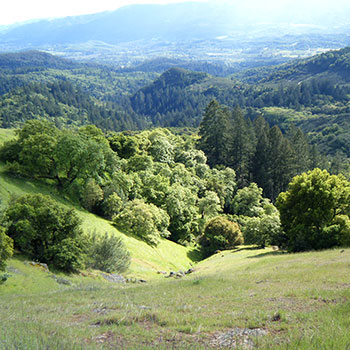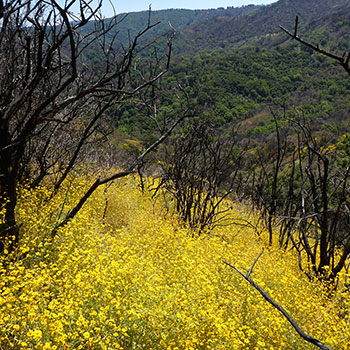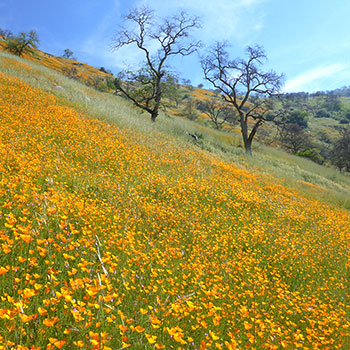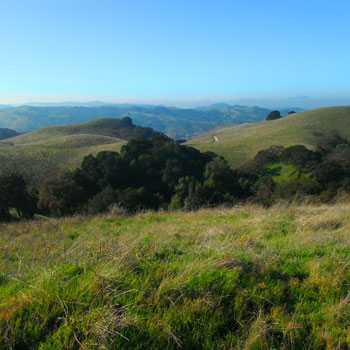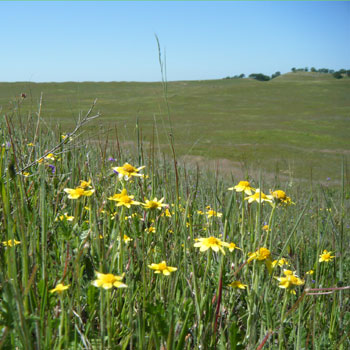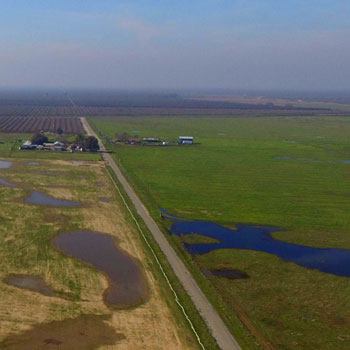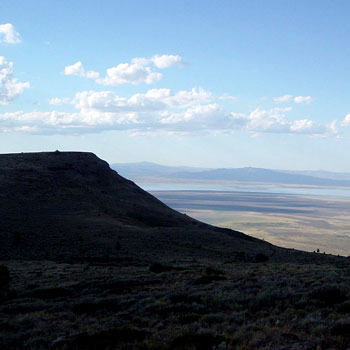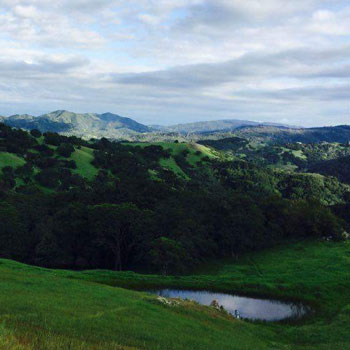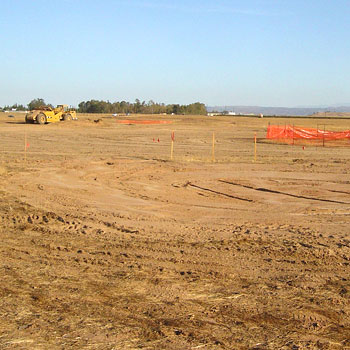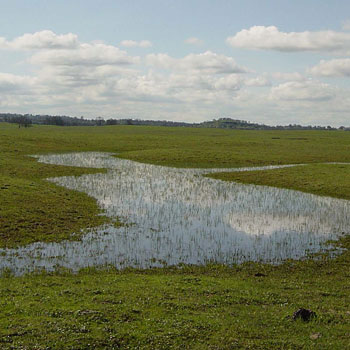Projects
Representative Projects
Large-flowered fiddleneck (Amsinckia grandiflora) is a critically endangered plant species that is a California endemic wildflower presumed extant as only two small natural populations. In partnership with the University of California Botanical Garden as a subcontractor, VNLC is oversaw this federally funded project to propagate and reintroduce the species into its historic range at 10 suitable sites, and was responsible for the study design, analysis, and implementation.
Located at the northeastern edge of Sonoma Valley, Calabazas Creek Open Space Preserve encompasses wild and scenic open space with regional significance. Rising from the valley bottom to the crest of the Mayacamas Mountains, the site features a wide range of natural habitats, which in turn support an exceptional diversity of native plants and animals.
VNLC prepared three annual monitoring reports for a post-fire habitat study of areas burned by the Loma Fire in the Santa Cruz Mountains. The OSA’s primary goals were to preserve open space, protect natural resources, and provide opportunities for education and recreation to the public. Environmental data collection and analysis is required to perform well-informed, strategic land management practices. The Loma Fire started on September 26, 2016 and burned 1,811 hectares (4,474 acres), primarily burning natural wildland habitats, but also affecting additional structures and landscape features.
VNLC senior botanists John Vollmar and Jake Schweitzer collaborated with the CNPS on this project involving the collection of vegetation data in support of classification and mapping of the southern Sierra Nevada Foothills eco-region. The study area encompasses over two million acres and extends from western Mariposa County south to eastern Kern County, within an elevation range of 500 to 4,000 feet.
Fernandez Ranch incorporates 700 acres of grasslands, oak woodlands, and riparian corridors representative of northern Contra Costa County's beautiful open lands.
VNLC was awarded a USFWS grant to conduct updated status surveys of two federal and State listed species: Hartweg's golden sunburst (Pseudobahia bahiifolia) and San Joaquin adobe sunburst (Pseudobahia peirsonii).
VNLC undertook a first-of-its kind landscape-level restoration of a formerly leveled vernal pool landscape. Based on LiDAR data, historical aerial photos, and extensive soil pit studies, we designed a complete pool-swale-mound system.
Vollmar Natural Lands Consulting conducted surveys for rare plants, invasive weeds, and sensitive habitats within 9,600 acres on the Mt. Hough Ranger District, Plumas National Forest.
The Montezuma Wetlands Project is using dredge material from SF Bay to restore tidal marsh within diked baylands at a site along the edge of Suisun Bay. This project incidentally impacted western burrowing owl habitat and several man-made seasonal pools supporting listed shrimp species.
VNLC conducted pond and stream surveys for special-status reptiles and amphibians at six large preserves owned or managed by the Santa Clara Valley Open Space Authority.
The 2,700-acre La Purisima Ranch is located in the Purisima Hills of northwestern Santa Barbara County. The predominant vegetation communities on the Ranch are coastal sage scrub, oak woodland, and native and introduced annual grasslands.
Vollmar Natural Lands Consulting is establishing a multi-species vernal pool/seasonal wetland mitigation bank for Caltrans on a 200-acre property located northwest of Fresno, California. Caltrans will use the bank as an in-house source of mitigation for impacts from transportation projects in the San Joaquin Valley.
VNLC conducted a two-year study being funded by the Bureau of Reclamation under the Central Valley Improvement Act grant opportunity (with technical oversight by the U.S. Fish and Wildlife Service) that examined historical trends and success of vernal pool restoration and creation at ten project sites (~500 pools) in the Sacramento Valley.

